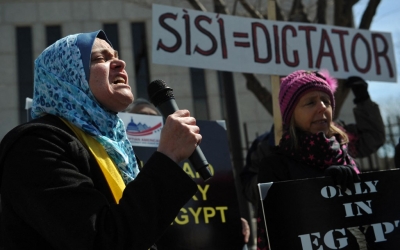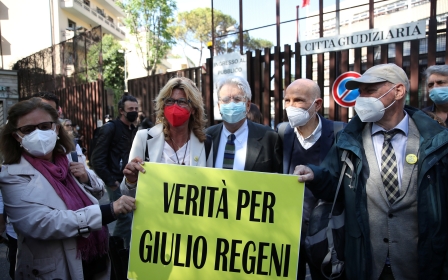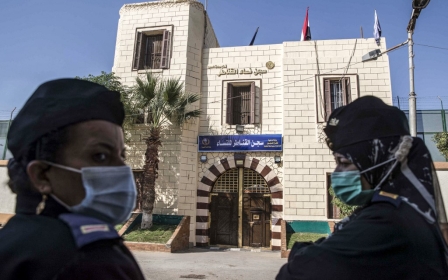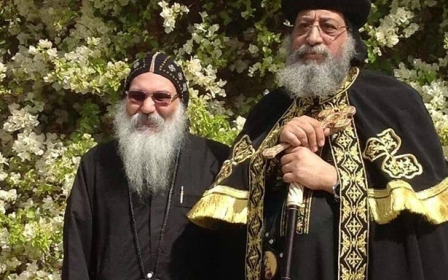Egypt's repression campaign extends to US citizens, new report finds
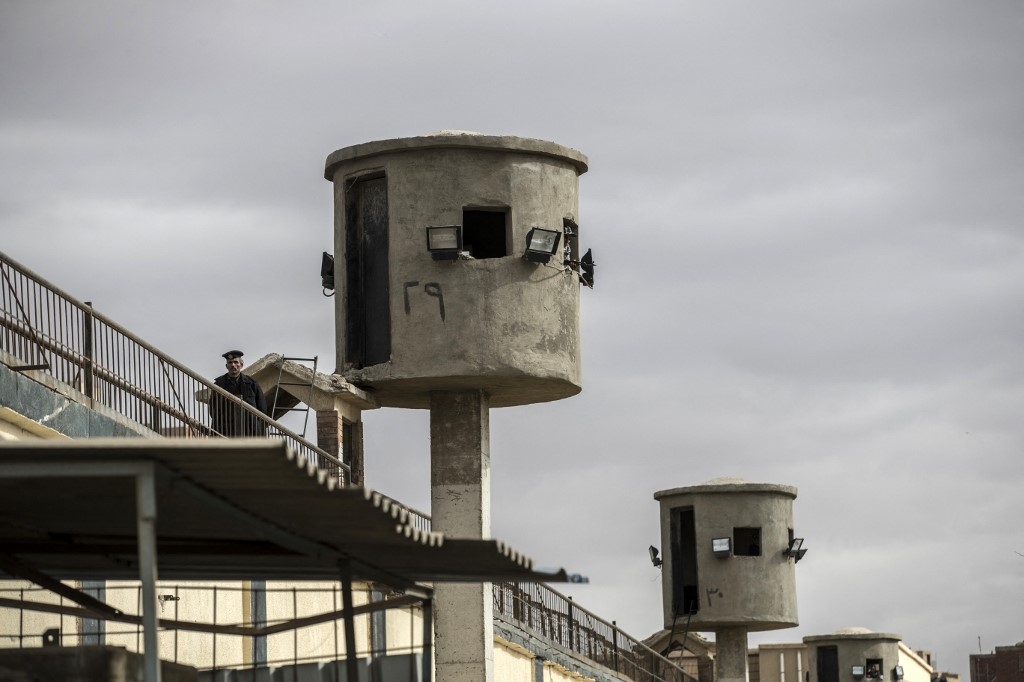
Egypt's long arm of repression has targeted US citizens, permanent residents and visa holders, with the US embassy in Cairo offering little to no assistance to secure their release, a report released on Wednesday has said.
The study, published by the Freedom Initiative, also found that at least five US nationals, visa holders, or residents had family members who were detained in 2020 as a means to coerce them back to the country - where they may face imprisonment.
"The results of the research are clear: the impact of Egypt's abusive detention practices is not felt only within its own borders. Transnational in nature, Egypt's widespread and systematic campaign of arrest, imprisonment, and abuse reach Americans on their home soil," the report said.
The study noted that the cases of detention were connected with a wide range of people, including Coptic Christians, individuals with a known affiliation to the Muslim Brotherhood, as well as political dissidents and activists.
The report highlighted that, throughout 2020, Egyptian authorities used detention not only as a means of punishment but also as a means of reprisal against individuals that had been vocally critical of the government.
Rather than targeting certain critics, activists, or outspoken individuals themselves - who are based in the US - Egyptian authorities went after their family members living in the country.
"These reprisals most often took the form of detention of family members as a hostage-taking tactic, where, either by explicit declaration or implicit suggestion, those in the US understood that their family members might be released if they ceased their activity or speech," the report said.
At least 26 family members of US-based persons were held in detention in 2020, according to the Freedom Initiative.
Earlier this year, plain-clothes Egyptian security forces raided the homes of six members of Egyptian-American activist Mohamed Soltan's family, detaining two cousins, in apparent retaliation for his advocacy in the US.
Lack of health care access
Since Egyptian President Abdel Fattah el-Sisi came to power in 2014, Cairo has embarked on a brutal crackdown on dissent, jailing more than 60,000 critics and imposing strict censorship measures on public discourse.
Sisi has consistently denied that there are political prisoners in Egypt, framing the crackdown as part of a fight against terrorism.
In January, a UN rights expert condemned Egypt for targeting journalists, human rights defenders and their families, and called on authorities to stop silencing dissent and shrinking civic space in the country.
During 2020, a year that saw the coronavirus rise to a global pandemic, the report highlighted that a lack of healthcare access was a major concern, as many prisoners were held in overcrowded and unsanitary facilities and denied access to health services.
Moustafa Kassem, a dual Egyptian-American citizen imprisoned in Egypt for more than six years on what he insisted were false charges, died in January 2020, prompting outrage among rights groups and activists who blamed the death on the failure of the Donald Trump administration for not securing his release.
At least two additional family members of US citizens died while imprisoned in Egypt last year, according to the report.
Even after being released from prison, many individuals told the Freedom Initiative of their psychological distress and difficulty maintaining social or professional connections over fear of being targeted.
Role of US Congress
US President Joe Biden has been vocal about the issue of human rights in Egypt; months before being elected, he tweeted a warning to Sisi while highlighting the cases of multiple individuals who had been detained by Cairo, including Soltan.
Still, rights groups criticised Biden after his administration approved a $200m arms sale to the country on the same day that reports emerged of Soltan's family members being detained.
The Freedom Initiative noted the US government was able to play a key role in securing the release of imprisoned Egyptians, including through Congress which can advocate for the release of prisoners.
Last October, more than 50 Democratic lawmakers sent a letter to Sisi, calling on him to release human rights activists, lawyers, journalists and other prisoners of conscience that have been detained.
Still, the report said that when it came to consular services, the US embassy in Egypt did little to help detained family members in 2020, and their American citizenship did not help bring attention to their cases.
"I told the prosecutor that I was a US citizen and that this arbitrary detention would turn public opinion against him," one person, who remained anonymous, told the Freedom Initiative.
"In response, he denied me access to lawyers, withheld visitation rights, and said 'being an American won't help you here'."
Middle East Eye delivers independent and unrivalled coverage and analysis of the Middle East, North Africa and beyond. To learn more about republishing this content and the associated fees, please fill out this form. More about MEE can be found here.


